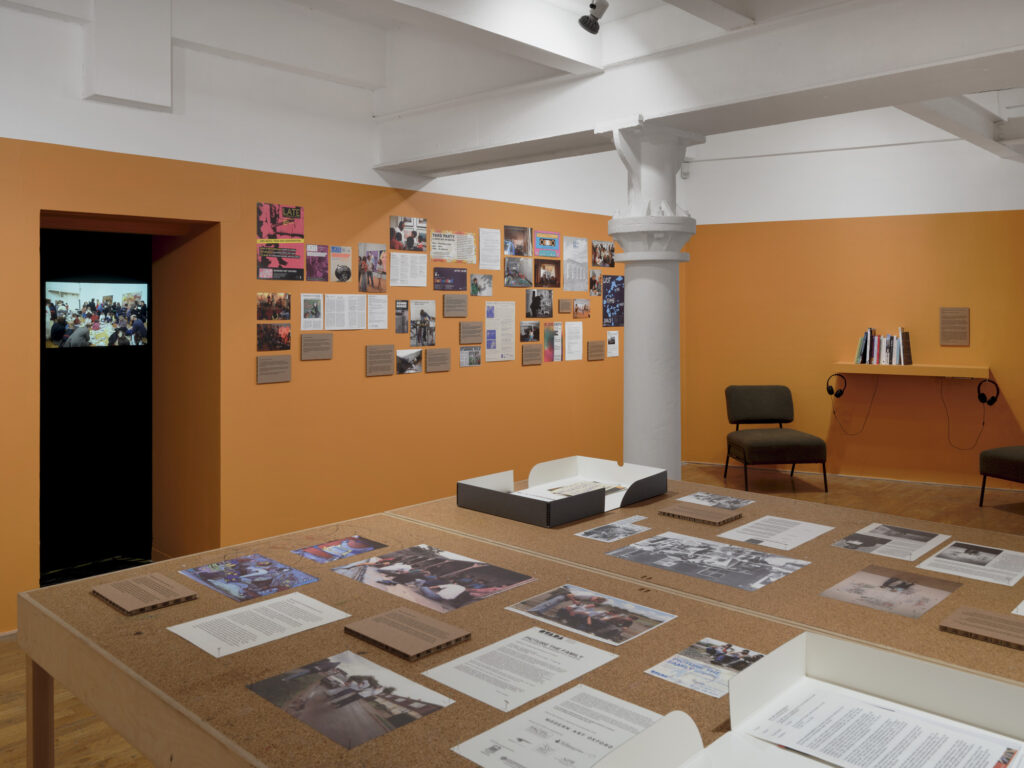Nottingham Contemporary
Weekday Cross, Nottingham, NG1 2GB
24 November 2023
Convened by Isobel Whitelegg and Ben Cranfield

Convened by Isobel Whitelegg (University of Leicester) and Ben Cranfield (Royal College of Art) in collaboration with Canan Batur (Nottingham Contemporary) the workshop brought together academics, artist-researchers and art-institutional curators and directors invested in the value and potential of institutional memory practices for non-collecting art organisations.
Session One [Practices & Narratives] opened with provocations from Sara Lowes and Holly Broughton (Modern Art Oxford) and Anjalie Dalal-Clayton (UAL Decolonising Art Institute). Through a reflection on their recent Boundary Encounters project, Lowes and Broughton raised a discussion of how archival and embodied memories of educational and community work may challenge hierarchies of value and produce new possibilities for engagement. Reflecting on her continuing work on the legacies of Black British artists, Dalal-Clayton raised the key question of who institutional memory practices are presumed to be for, and whose values these subsequently represent.
Session Two [Instituting Memory] was opened by Bryan Biggs (Bluecoat, Liverpool), whose reflection on Bluecoat’s sustained work in this area supported wider discussion of the importance of ongoing critically-reflective work and long-term engagement. The collective insights and perspectives shared in the workshop demonstrated that institutional memory practices have the potential to support generative historical research and curatorial practice as well as organisational development. They further emphasised a need to understand how precarity, short-termism and underinvestment undermine attempts to sustain a critically reflective organisational culture, and how this risk can be mitigated by partnership work and reflective programming as well as subtle changes to everyday working practices.




